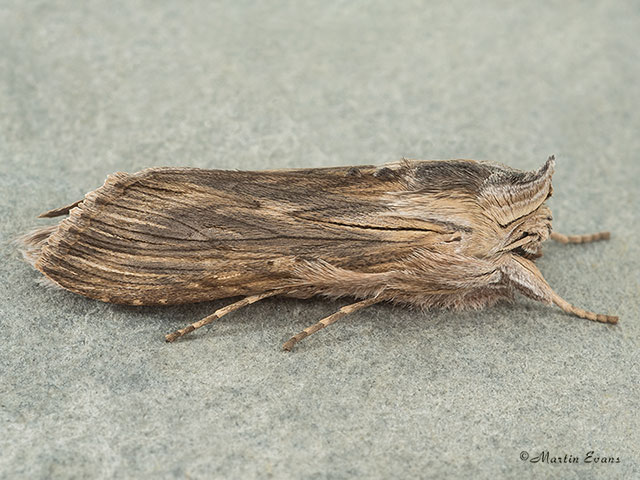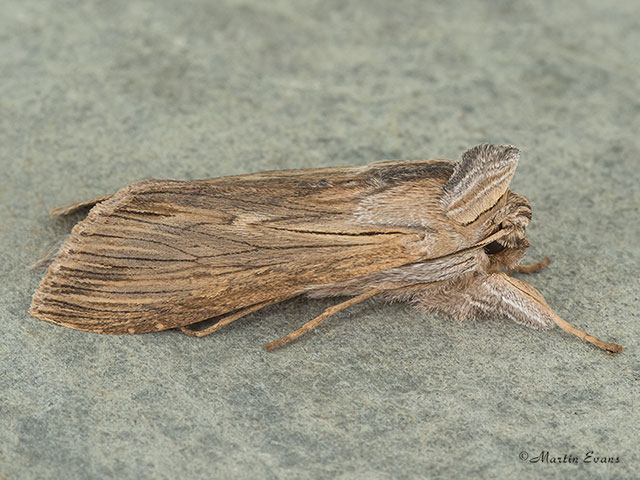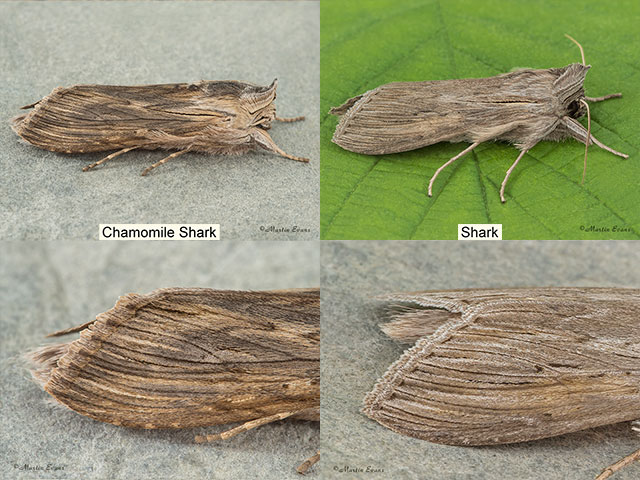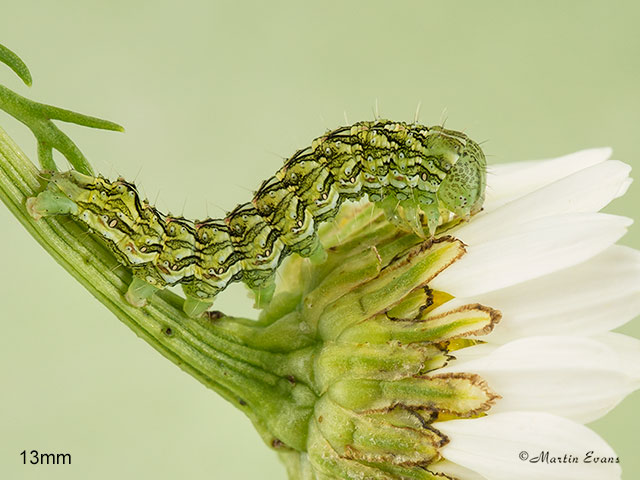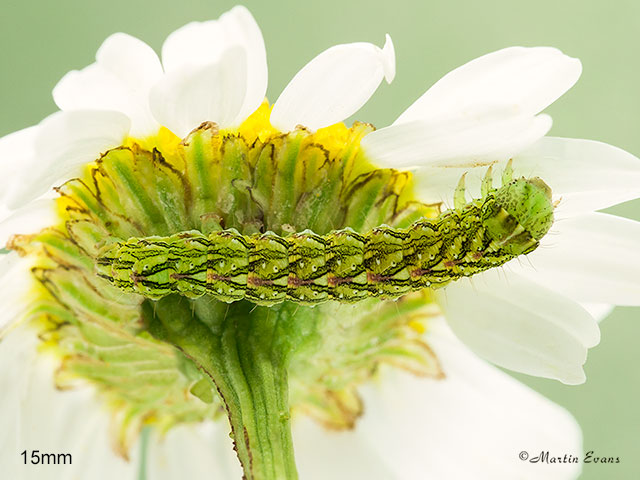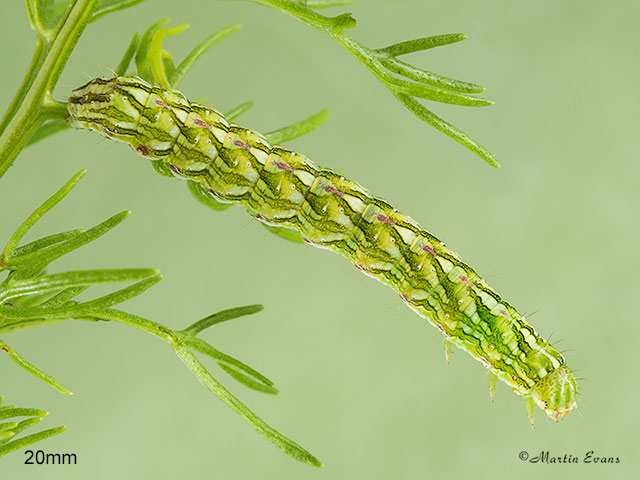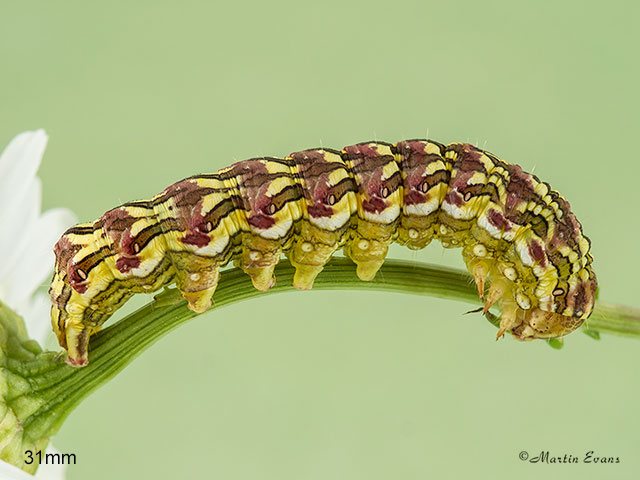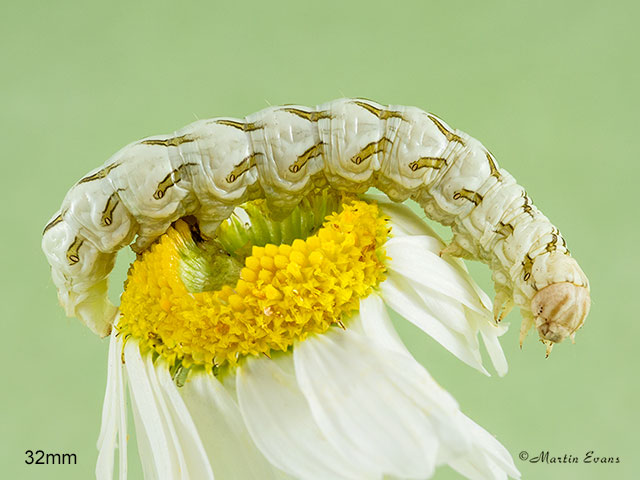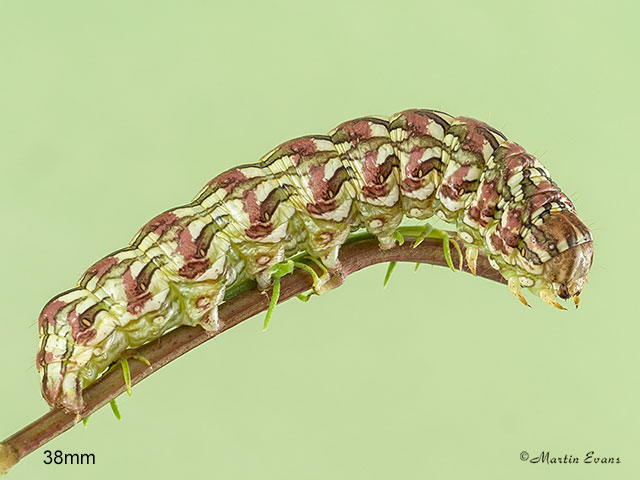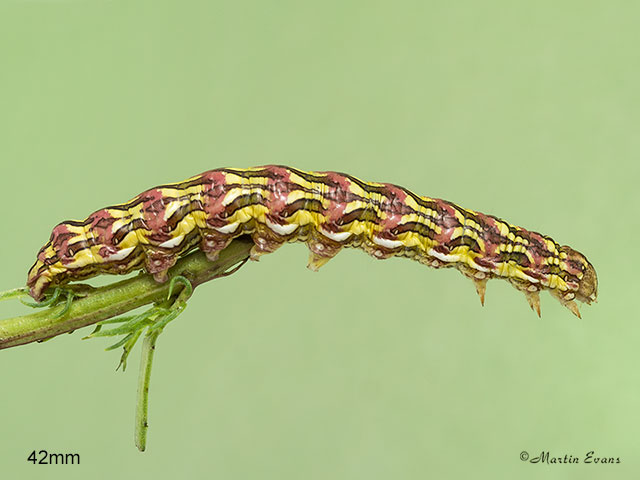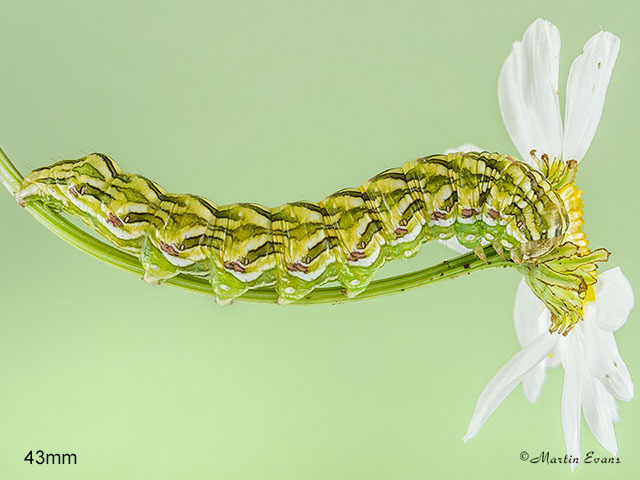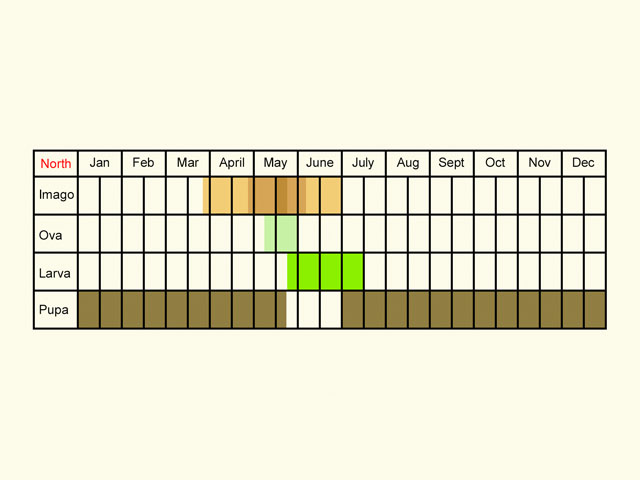Noctuidae
73.053 Chamomile Shark Cucullia chamomillae ([Denis & Schiffermüller], 1775)
Local
Similar species: Marigold Shark Cucullia calendulae has similar outer wing markings, with comparitively more defined forewing markings including a broken dark edge to the kidney mark. The British and Irish records have all been between late November and late December although it overwinters until late April on the European mainland. Any moth that looks like Chamomile Shark, but found well after its flight time (from October until April), should be retained to check the genitalia.
Forewing: 19 to 23mm
Habitats: Wasteground, disturbed areas in dry grassland, wasteground, coastal grasslands, sand-dunes and occasionally gardens.
Habits: The moth is occasionally found on fence posts and tree trunks during the day. It flies from dusk when it nectars at flowers. It comes sparingly to light.
Foodplant: The larva feeds throughout the day and night on the flowers of Scentless Mayweed, Corn Chamomile, Stinking Chamomile, Chamomile or Feverfew, resting openly on the flowers and when larger on the foliage or stems. The larva pupates in a strong earth-covered cocoon under the soil, sometimes overwintering for more than one winter.
On the European mainland it has also been recorded feeding on Sea Mayweed, Yarrow and wormwoods.
